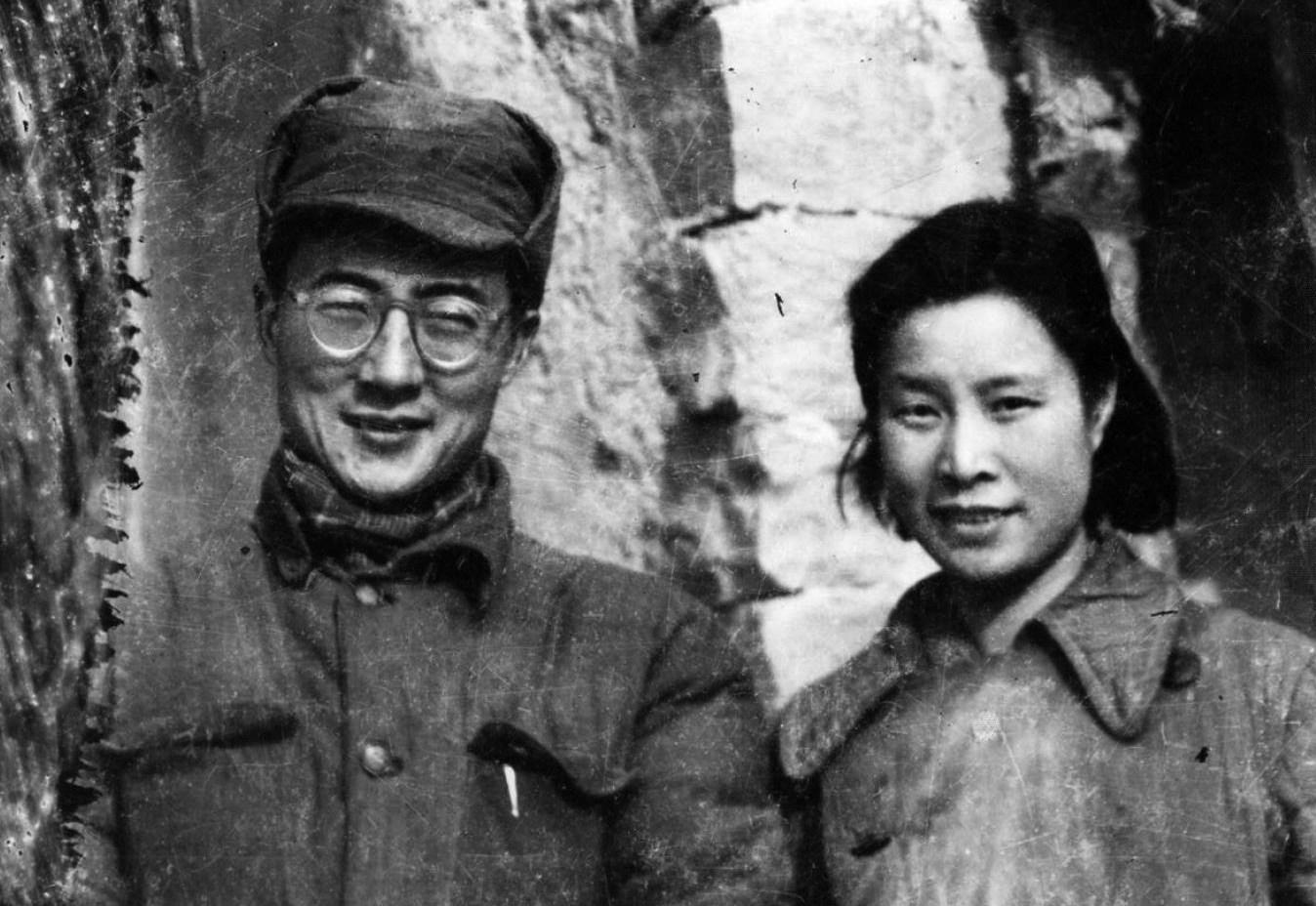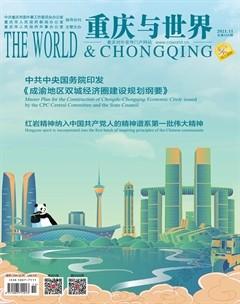中共中央南方局走出去的共和国外交官(三)


Diplomats from the Southern Bureau of the CPC Central Committee (3)
協助董必武出席联合国大会—陈家康
陈家康(1913—1970年),湖北广济人。
全面抗战爆发后,陈家康被调入八路军驻武汉办事处,任周恩来秘书兼英文翻译,并为对外宣传组成员。中共中央南方局在重庆成立后,陈家康任外事组副组长兼周恩来秘书,与王炳南一起推动中共中央南方局外事工作的开展。
美国历史学家费正清回忆:“抗战时期的重庆,我和陈家康这位才思敏捷、足智多谋的小个子男士谈论了半个小时的明清史,这比整个冬季我同别的人谈得都多”。
皖南事变发生后,陈家康在周恩来的领导下,和外事组人员广泛联系中外记者、外国驻华使馆人员,揭露事变的真相。1944年6月,在中共中央南方局外事组的推动下,包括美、英、苏等国在内的中外记者参观团访问延安。因陈家康精通英语,被调回延安,参加中外记者参观团及后来的美军观察组的接待工作。
抗战后期,陈家康又以翻译身份和章汉夫跟随董必武出席联合国制宪大会。在美国期间,陈家康以熟练的英语,协助董必武广泛接触参会的各国代表和美国各界人士、海外华侨,开展国际统战工作。
1945年11月,陈家康代表中国解放区青年联合会出席在美国举行的世界青年大会。回国后,他负责中共中央南京局外事委员会联络处的工作,担任中共代表团上海发言人,常面向中外新闻界发表谈话。在延安的毛泽东对中共代表团在南京、上海的斗争非常关注,他在一次亲笔写发的电报中,专门提到陈家康在上海的发言:“家康发言很好。”
1947年国共谈判破裂,陈家康撤回延安,奉命代表中国解放区青年联合会出席6月在捷克斯洛伐克召开的第一届世界民主青年大会。会上,他当选为世界青联执行委员,并留在世界青联工作。1948年春,他参加了世界青联派出的代表团,出访芬兰、瑞典、挪威、丹麦等国,广泛向各国青年介绍中国共产党领导下的解放区情况。
中华人民共和国成立后,陈家康于1950年调入外交部,先后任亚洲司副司长、司长,外交部副部长等职,随同周恩来出席日内瓦会议和万隆会议等。
Chen Jiakang - Assisting Dong Biwu in attending the General Assembly of the United Nations
Chen Jiakang (1913-1970) was born in Guangji, Hubei province.
After the outbreak of the War of Resistance against Japanese Aggression on all fronts, Chen Jiakang was transferred to the Wuhan Office of the Eighth Route Army as Zhou Enlai's secretary and English translator, and a member of the international communication group. After the establishment of the Southern Bureau in Chongqing, Chen served as deputy leader of the Foreign Affairs Group and secretary of Zhou Enlai, and unfolded the foreign affairs work of the Southern Bureau together with Wang Bingnan.
John King Fairbank, an American historian, recalled that in Chongqing during the War of Resistance against Japanese Aggression, Chen Jiakang was "a small man with agile thinking and resourcefulness. After I talked with him about the history of the Ming and Qing Dynasties for half an hour, the content exceeded my conversations with all other Chongqing people throughout winter".
After the Southern Anhui Incident, under the leadership of Zhou Enlai, Chen Jiakang, together with his Foreign Affairs Group members, made extensive contact with the Chinese and foreign journalists and personnel of foreign embassies in China to reveal the truth of the Incident. In June 1944, promoted by the Foreign Affairs Group of the Southern Bureau, a delegation of Chinese and foreign journalists from the U.S., UK, the Soviet Union, and other countries visited Yan'an. As Chen was proficient in English, he was transferred back to Yan'an to participate in the reception work of the visiting groups of Chinese and foreign journalists and later the United States Army Observer Group.
In the late period of the War of Resistance against Japanese Aggression, Chen Jiakang and Zhang Hanfu followed Dong Biwu to attend the Constitutional Convention of the United Nations as translators. During his stay in the United States, with fluent English, Chen helped Dong Biwu make extensive contacts with representatives of various countries, people from all walks of life in the United States and overseas Chinese to conduct international united front work.
In November 1945, Chen Jiakang attended the World Assembly of Youth (WAY) held in the United States on behalf of the Youth Federation of the Liberated Areas in China. After returning to China, he was responsible for the Liaison Office of the Foreign Affairs Committee of the Nanjing Bureau of the CPC Central Committee, served as the spokesman of the CPC delegation in Shanghai, and often spoke to the Chinese and foreign press. Mao Zedong in Yan'an at that time was very concerned about the struggles of the CPC delegation in Nanjing and Shanghai. In a personally-written telegram, he specifically mentioned Chen Jiakang's speech in Shanghai, "Jiakang's speech made great sense."
In 1947, when the negotiations between the Kuomintang (KMT) and the Communist Party of China (CPC) broke down, Chen Jiakang withdrew to Yan'an and was ordered to attend the first World Federation of Democratic Youth (WFDY) Conference held in Czechoslovakia in June on behalf of the Youth Federation of the Liberated Areas in China. At the conference, he was elected as the executive member of WFDY, stayed and worked here. In the spring of 1948, participating in the delegation sent by WFDY, he visited Finland, Sweden, Norway, Denmark, and other countries, and extensively introduced the situation of the liberated areas under the leadership of the CPC to the youth of all countries.
After the founding of the People's Republic of China, Chen Jiakang was transferred to the Ministry of Foreign Affairs in 1950, successively served as deputy director and director of the Asia Department and Vice Foreign Minister and accompanied Zhou Enlai to attend the Geneva Conference and the Bandung Conference.
參与周恩来与马歇尔谈判全过程—章文晋
章文晋(1914—1991年),浙江台州人。
抗战时期,章文晋留学回国,一方面投入抗日救亡运动,一方面在西南联大完成学业。1944年下半年,党中央决定将一批从西南联大毕业的青年学生经重庆撤往延安,以便为战后储备外语人才。由于中共中央南方局外事组急需外语人才,章文晋被留在重庆外事组工作。
在重庆时期,章文晋接替了龚澎的工作,这成为他外交生涯的起点。作为周恩来的翻译兼秘书,章文晋参加了1945年至1946年周恩来与美国特使马歇尔谈判的全过程。他凭借流利的英语和扎实的中文功底,陪同周恩来、马歇尔一起南下北上,调处国共矛盾,圆满完成了翻译任务,深受周恩来的赞赏。
章文晉后来回忆,在重庆时,他起草了一篇抨击国民党外交政策的发言稿。看了初稿,周恩来不太满意,对他说,一个射手是好是坏,不在于他一下子打出了多少发子弹,而在于看他是否一枪就命中靶心。章文晋顿时明白,自己的稿子是四面出击却没有击中要害。根据周恩来的修改意见,章文晋很快改出了第二稿,周恩来看了非常满意。
重庆谈判期间,毛泽东会见加拿大驻华大使时,章文晋被选定做翻译。会谈结束后,毛泽东误以为穿西装的章文晋是加拿大驻华使馆的译员,还夸赞说:“这位先生翻译得不错嘛!”章文晋赶紧解释,自己是八路军办事处的工作人员。毛泽东一听,更高兴了。此后,章文晋从重庆、上海、南京到延安,一直跟在周恩来身边从事翻译和秘书工作。
1949年1月,天津解放,章文晋在天津外事处工作,后被周恩来调入外交部,历任外交部亚洲司司长、部长助理、外交部副部长、中国驻美大使、中国人民对外友好协会会长等职,是中华人民共和国第一代杰出的外交家。
(部分资料由中共重庆市委党史研究室提供)
编辑/杨艳
Zhang Wenjin - Participating in the whole negotiation process between Zhou Enlai and G.C. Marshall
Zhang Wenjin (1914-1991) was born in Taizhou, Zhejiang province.
During the War of Resistance against Japanese Aggression, Zhang returned China after studying abroad. On the one hand, he devoted himself to the Anti-Japanese National Salvation Movement; on the other hand, he completed his studies at the National Southwestern Associated University. In the second half of 1944, the CPC Central Committee decided to withdraw a batch of young students who graduated from National Southwestern Associated University to Yan'an through Chongqing in order to reserve foreign language talent for the post-war period. As the Foreign Affairs Group of the Southern Bureau was in urgent need of foreign language talent, Zhang was kept to work in the Foreign Affairs Group in Chongqing.
With his stay in Chongqing, Zhang succeeded Gong Peng, which became the starting point of his diplomatic career. As Zhou Enlai's translator and secretary, Zhang Wenjin participated in the whole process of the negotiations between Zhou Enlai and U.S. presidential envoy G.C. Marshall from 1945 to 1946. With fluent English and solid Chinese language skills, he accompanied Zhou Enlai and G.C Marshall to the South and North to mediate the contradictions between KMT and CPC, successfully completed the translation task, and was deeply appreciated by Zhou Enlai.
Zhang Wenjin later recalled that when he was in Chongqing, he drafted a speech criticizing KMT's foreign policy. After reading the first draft, Zhou Enlai was not very satisfied. He told him that whether a shooter is good or bad depends not on how many bullets he fired at once, but on whether he hit the bull's-eye with one shot. Zhang suddenly found that his draft made an attempt to attack in all directions, but failed to get to the point. According to Zhou's modification opinions, he quickly revised and produced the second draft, which satisfied Zhou very much.
During the Chongqing Negotiations, when Mao Zedong met with the Canadian ambassador to China, Zhang Wenjin was selected as the translator. After the talks, Mao Zedong mistook Zhang in suit as an interpreter of the Canadian Embassy in China and praised him, "this gentleman is quite an excellent translator!" Zhang Wenjin quickly explained that he was a staff member of the Eighth Route Army Office. Mao was even more overjoyed after hearing this. Since then, Zhang Wenjin had been engaged in translation and secretarial work with Zhou Enlai from Chongqing, Shanghai, Nanjing to Yan'an.
In January 1949, after the liberation of Tianjin, Zhang Wenjin worked in the Tianjin Foreign Affairs Office. Later, he was transferred to the Ministry of Foreign Affairs by Zhou Enlai and successively served as director of the Asia Department of the Ministry of Foreign Affairs, Assistant Minister, Vice Minister of the Ministry of Foreign Affairs, Chinese ambassador to the United States and president of the Chinese People's Association for Friendship with Foreign Countries and was indeed the first generation of outstanding diplomat of the People's Republic of China.
(Partially provided by Party History Research Center of the CPC Chongqing Committee)
Editor/Yang Yan

